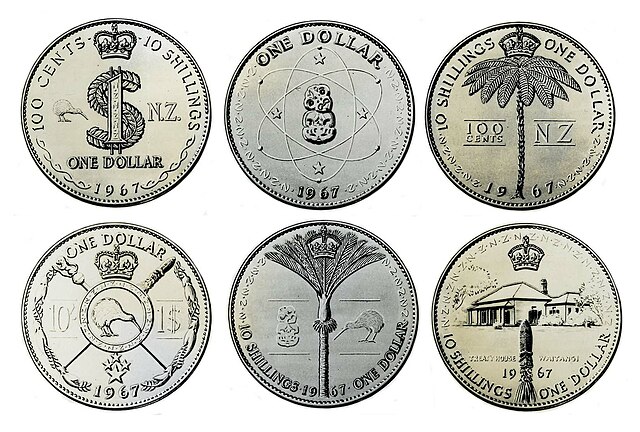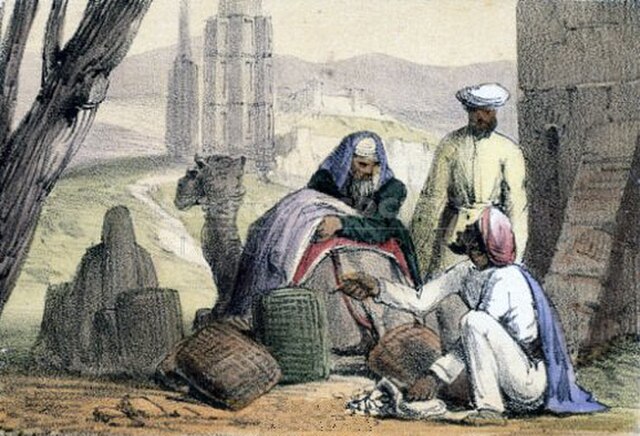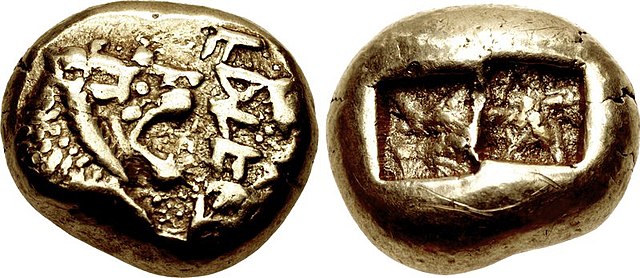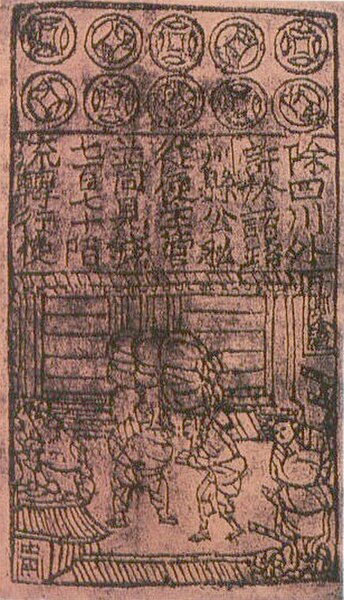The New Zealand dollar is the official currency and legal tender of New Zealand, the Cook Islands, Niue, the Ross Dependency, Tokelau, and a British territory, the Pitcairn Islands. Within New Zealand, it is almost always abbreviated with the dollar sign ($). The abbreviations "$NZ" or "NZ$" are used when necessary to distinguish it from other dollar-denominated currencies.
Proposed designs for a $1 (10 shilling) coin
A currency is a standardization of money in any form, in use or circulation as a medium of exchange, for example banknotes and coins. A more general definition is that a currency is a system of money in common use within a specific environment over time, especially for people in a nation state. Under this definition, the British Pound sterling (£), euros (€), Japanese yen (¥), and U.S. dollars (US$) are examples of (government-issued) fiat currencies. Currencies may act as stores of value and be traded between nations in foreign exchange markets, which determine the relative values of the different currencies. Currencies in this sense are either chosen by users or decreed by governments, and each type has limited boundaries of acceptance; i.e., legal tender laws may require a particular unit of account for payments to government agencies.
Cowry shells being used as money by an Arab trader
The world's oldest coin, created in the ancient Kingdom of Lydia
Song dynasty Jiaozi, the world's earliest paper money
A list of exchange rates for various base currencies given by a money changer in Thailand, with the Thailand Baht as the counter (or quote) currency. Note the Korean currency code should be KRW.





